
Poco loco is an American country rock band originally formed by Richie Furay, Jim Messina and Rusty Young. They were formed following the demise of Buffalo Springfield in 1968, Poco was part of the first wave of the West Coast country rock genre. The title of their first album, Pickin' Up the Pieces, is a reference to the break-up of Buffalo Springfield. Throughout the years Poco has performed in various groupings, and is still active.

Pickin' Up the Pieces is the debut album by country rock band Poco, released in 1969. It was one of the earliest examples of the emerging genre of country rock. Several of the songs here date back to Richie Furay's days in Buffalo Springfield. An early version of "What a Day" was included on the Springfield's eponymous box set in 2001.
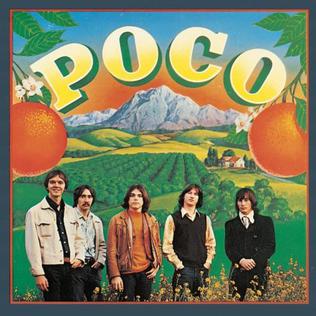
Poco is the second album by American country rock band Poco. This is the band's first album to feature Timothy B. Schmit who replaced Randy Meisner. The Messina-penned "You Better Think Twice" became a signature song for the band. A copy of this album hangs in the Poco exhibit in the Country Music Hall of Fame in Nashville along with the jacket Rusty Young wears on the back cover.

Deliverin’ is the third album, and first live album, by the American country rock band Poco. Jim Messina quit the band in October 1970, prior to the release of the album.

From the Inside is the third studio album by the American country rock band Poco. The band was reportedly unhappy with it following its release. This album was the first to include new member Paul Cotton as lead guitarist, who replaced Jim Messina. Messina would go on to form his partnership with Kenny Loggins.
A Good Feelin’ to Know is the fourth studio album by the American country rock band Poco. The title track became the band's most recognizable tune from its early days. However, the album did not do as well commercially as expected, discouraging Richie Furay, who would leave the band after the release of the band's next album Crazy Eyes.

Crazy Eyes is the fifth studio album released by the American country rock band Poco. Released in 1973, Crazy Eyes was the album with which founding member Richie Furay ended his original tenure with the group.

Seven is the sixth studio album by American country rock band Poco. It is the first album they made after leader Richie Furay left the band. The front cover was designed by Phil Hartman. On this album the group experimented with a harder rock sound on some of the tunes.
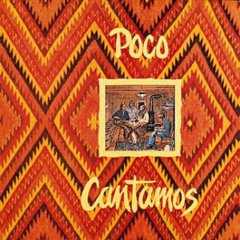
Cantamos is the seventh studio album by the country rock band Poco. It was released in 1974 on Epic Records. This album saw the band moving back towards their traditional country rock sound after experimenting with a harder style on the previous album.
Head over Heels is the eighth studio album by the American country rock band Poco, and their first on ABC Records. Schmit's "Keep On Tryin'" shows off the band's skills in harmonizing and became a cut that the band played in concert for many years. It also contains Rusty Young performing his first lead vocal on a Poco album on the track "Us", and a recording of the rare Steely Dan song "Dallas".

Rose of Cimarron is the ninth studio album by the American country rock band Poco, released in 1976.

Indian Summer is the tenth studio album by the American country rock band Poco, released on May 1, 1977. The appearance of Steely Dan's Donald Fagen playing synthesizer on two of the tracks marked another move away from the country rock sound the band had primarily been known for. This was the band's last studio album before both Timothy B. Schmit and George Grantham left the group.

Legend is the eleventh studio album by the American country rock band Poco, released in 1978.
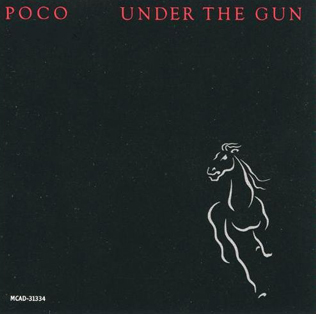
Under the Gun is the twelfth studio album by the American country rock band Poco. Released in July 1980, Under the Gun was the followup to Poco's breakout album Legend.

Inamorata is the sixteenth studio album by the country rock band Poco, released in 1984. Featuring guest spots by former members Timothy B. Schmitt, Richie Furay and George Grantham, this would be the last album that the band would record for Atlantic Records. After this the original line up would reform for the 1989 release Legacy.
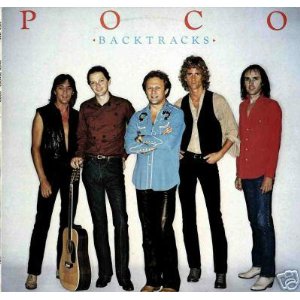
Backtracks is a compilation album by the American country rock band Poco, released in 1982. The nine tracks are taken from the first six studio albums the band recorded for MCA after having left their original label Epic.
The Ultimate Collection is a compilation album by the American band Poco, released in 1998.

The Essential Collection (1975–1982) is a compilation album by the American band Poco, released in 1997.
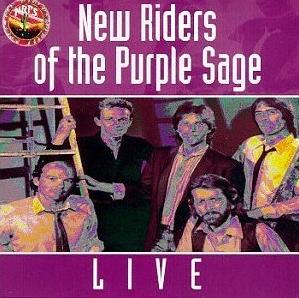
Live is an album by the country rock band the New Riders of the Purple Sage. It was recorded live at the Palomino in North Hollywood, California on September 21 and November 20, 1982. It was released on the Avenue Records label on February 14, 1995. The album is sometimes referred to as Live (1982).

Psychedelic Psoul is an album by the American psychedelic rock band The Freak Scene, and released on Columbia Records in 1967. After the release of the pioneering album, Psychedelic Moods, a year prior, lead member Rusty Evans reassembled the studio-only group to expand on the aspects of the previous effort. Among the material, the band included abnormal sound effects, fuzz guitar motifs, and utilization of tape manipulation, which was most relevant on the instrumental piece, "Grok!". In addition, Psychedelic Psoul incorporated Middle eastern influences, most notably in the tracks "A Million Grains of Sand,” “Rose of Smiling Faces” and “My Rainbow Life", all of which Evans first experimented with while recording the New York rock outfit, The Third Bardo.















